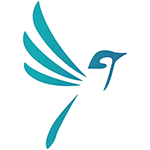


Former CIA covert operations officer Valerie Plame joined Boston-based Starling Trust Sciences as an adviser this week. Starling aims to establish a digital trust infrastructure that would give people the ability to identify and connect with trustworthy peers. With the technology Starling is developing, users will see how trustworthy another person is based on various factors, including the number of mutual connections.
“I am excited to join the Starling team and to support their development of 21st century people analytics tools,” Plame said in a statement. “Starling’s ability to bring credible quantitative metrics to qualitative management challenges is a game-changer.”
Plame’s unique understanding of trust stems from her experience working as a spy for the CIA. Her cover was blown in 2003 after her name was leaked to Washington Post columnist Robert Novak. She is the author of the New York Times best-selling memoir “Fair Game: My Life as a Spy, My Betrayal by the White House.” Plame will guide Starling’s development of the technology which will identify the underlying trust networks of organizational behavior.
“Having the ability to work closely with Valerie, given her background in intelligence and very deep understanding of how trust impacts organizations, is exciting,” said cofounder Alif Saleh.
Starling operates on the assumption that a successful office culture is driven by the trust dynamics of its staff and uses network science and graph theory to map employee trust networks for companies and organizations. Through its software, Starling can sift through employee communication data collected internally by organizations and then predict trust levels between employees in real time.
Cofounders Stephen Scott and Saleh developed an algorithm which identifies a few key variables from the data that correlate to trust levels. These variables are then visualized in a trust graph, which Saleh compares to a heat map. The color-coded graph depicts trustworthy or untrustworthy areas, and how the trust levels change over time. “By using trust graphs, an organization can look what departments and teams have high trust and low trust,” said Saleh. “Low trust represents a first warning signal of general organizational dysfunction, lack of engagement and communication, and in worst cases fraud.” It can also be “a huge productivity cost.”
He says Starling’s product gives companies the ability to intervene in low trust areas before sluggish productivity becomes expensive. By applying some of these principles to people’s interactions, Starling seeks to build the world’s first distributed trust system. The ultimate goal is to encourage the cultivation of trust among strangers to support collaboration and creation in all fields of work.
The company was previously based in multiple cities, including San Francisco and Washington, D.C., but recently decided to put down permanent roots in Boston as it moves into the product development stage. Once space is secured, it will move operations from Sudbury to Boston.
Starling plans to build the technology and product development teams with Boston brains.
“There’s proximity to talent,” said Saleh. “On the science side, there’s proximity to universities. MIT, Harvard, and Northeastern all have significant programs within the field of network science.”
Starling shares its name with the type of bird, which are best known for their massive flocks. These flocks not headed by a single leader, but instead each bird interacts (and trusts) the seven starlings surrounding it. Saleh explained the the birds’ innate trust network make starlings a suitable symbol for the startup’s work.
In addition to Plame, Starling’s other advisers include Hooman Radfar, cofounder of AddThis, and Sonal Shah, who previously served a special adviser to the president and as director of the first White House Office of Social Innovation and Civic Participation. The company has raised its funding from private investors; it currently has 10 employees.
Keep Reading